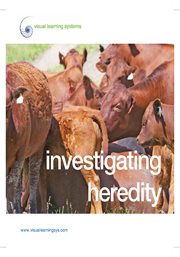Unique The new science of human individuality
Book - 2020
"As a scientist, David Linden had devoted his career to understanding the brain processes and behaviors that are common to us all. That is, until a few years ago, when he found himself on OKCupid. Looking through that vast catalog of human difference, he got to thinking, where does it all come from? Why does one person have perfect pitch, a taste for hoppy beer, and an aversion to bathroom selfies? That is, what makes you, you, and me, me? In Unique, David Linden tells a riveting and accessible story of human individuality. Exploring topics that touch all of our lives-among them sexuality, gender identity, food preferences, biological rhythms, mood, personality, memory, and intelligence-Linden shows that human individuality is not simp...ly a matter of nature versus nurture. Rather, it is a product of the complex, and often counterintuitive, interplay between our genetic blueprints and our experiences. Experience isn't just the how your parents reared you, but the diseases you have had, the foods you have eaten, the bacteria that reside in your body, the weather during your early development, and the technology you've been exposed to. Drawing all those factors together, Linden argues that human individuality is key to how we live as individuals and groups and explores how questions of individuality are informing social discussions of morality, public policy, religion, healthcare, education, and law. Like Carl Zimmer's She Has Her Mother's Laugh and Robert Sapolsky's Behave, Unique unveils a new vista on the intricacies of human existence. But, for all its brilliance and insight, this is no weighty academic tome. Told with Linden's unusual combination of authority and openness, seriousness of purpose and a great sense of humor, Unique sets a new standard for what popular science can be"--
- Subjects
- Published
-
New York :
Basic Books
[2020]
- Language
- English
- Main Author
- Edition
- First edition
- Physical Description
- 317 pages : illustrations ; 25 cm
- Bibliography
- Includes bibliographical references and index.
- ISBN
- 9781541698888
- Prologue
- 1. It Runs in the Family
- 2. Are You Experienced?
- 3. I Forgot to Remember to Forget You
- 4. Sexual Self
- 5. Who Do You Love?
- 6. We Are the Anti-Pandas
- 7. Sweet Dreams Are Made of This
- 8. A Day at the Races
- Epilogue
- Acknowledgments
- Notes
- Index
Review by Kirkus Book Review

